Transcribed from the 6 June 2015 episode of This is Hell! Radio and printed with permission. Edited for space and readability. Listen to the full interview:
“What do you do with corruption? Do you just ‘shine a bright light?’ Or do we try to delegitimize these elites? The only real solution is to get rid of these guys.”
Chuck Mertz: The FIFA scandal story is about a lot more than soccer. It’s about global corruption; it’s about the power of the elites; it’s about the sleaziest way in which poverty and conflict are exported around the globe: in other words, it is about soccer. With a perspective live from Durban, South Africa, political economist Patrick Bond wrote the TeleSur article FIFA Fraud: Africa’s corruption and Elite Silence about the scandal rocking global soccer.
For those who don’t know, seven top officials of soccer’s international governing group, FIFA, including two vice presidents, were arrested last week. They were among fourteen charged in a 47-count US indictment which alleges five corporate executives and nine FIFA officials in total accepted bribes and kickbacks estimated at more than $150 million over a 24 year period.
Patrick, you write, “The last week has provided extraordinary examples of how corruption erodes the resources and morals of an entire continent, in part because villains in South Africa made alliances with wicked brothers in Switzerland, Latin America, the Caribbean, and especially the United States. We now know more about off-shore centers of both reactionary finance and corrupt corporate soccer. It’s long overdue they are exposed to a spotlight—even though those pointing that light want to leave certain features in the shadows.”
You say here, “and especially the United States.” The way that this story is being packaged here in the United States is that this has nothing to do with the United States. How is this story about “especially the United States,” when we’re saying it’s about everybody else but us?
Patrick Bond: Well, it’s partly because there’s one US soccer official, Chuck Blazer, who is spilling the beans. He got nailed a couple of years ago for similar crimes. The one that I’m most interested in—and South Africa is fascinated by—is that we got our World Cup in 2010 through bribing Chuck Blazer and his colleague Jack Warner. It was $10 million; Chuck Blazer took a million of it, or nearly a million.
He was pushing for a million, and because he didn’t quite get it, things dragged on. To sweeten the deal, both he and Jack Warner—who is from Trinidad and has run the Caribbean side of the Caribbean/North American League, (Chuck Blazer was the US side)—got lots of face time with Nelson Mandela. That was one of the core inducements to make South Africa the first African host back in 2010.
This goes all the way back to 2004. South Africa was running against Morocco, who had offered these same lads a one million dollar bribe. But the point is, all this money went through US banks, which is the technical explanation of why the FBI and Loretta Lynch from Justice got involved.
Of course they’ve got exceptionally powerful surveillance tools, as Edward Snowden has shown us. After 9/11 they started really going after foreign bank accounts for the first time—at that point it was the finances of hardcore Islamic fundamentalists. Now they can go right into the Swiss banks and see basically anything (which makes Switzerland much less attractive for your average dictator).
That’s making it quite an unveiling. It’s not just about the grey corruption of African elites trying to get the World Cup by instrumentalizing Nelson Mandela (our great icon of probity, honesty, and integrity), but their having also arranged $10 million—and disguising it in a clever way. Many of our leaders here are trained in Moscow, so they know how to talk left while they walk right. They dressed that $10 million bribe up as a development investment, from South Africa, for the African diaspora.
I think it’s great that the major corrupt banking centers, New York City and Zurich, are also implicated. It’s not just sleazy soccer officials like Chuck Blazer.
CM: So Patrick, is this view into the Swiss banking system the upside, then, of the War on Terror, since it led us to finding the kind of corruption that took place with FIFA?
PB: That’s been the focus of the other big story of the last couple of weeks, which is that president Thabo Mbeki, who was Mandela’s successor from 1999 to 2008 (he was evicted in a palace coup, and the current president, Jacob Zuma, came in shortly thereafter). But Mbeki has been investigating precisely these sorts of illicit financial flows (they call it IFF). These IFFs, according to Mbeki, are costing Africa $50 billion a year. Of course a good chunk goes into Switzerland, the most notorious source being probably Nigeria; its dictators and army elite put a lot of money there, and also London. Some of that was found out.
So yes, after 9/11 an ideology emerged, and it wasn’t just the search for Islamic fundamentalists and the financial flows that financed terror attacks. It was something more profound. George Soros and his Open Society Network came up with a theory in the early 2000s: If you shine a bright light on corruption, by seeking total transparency, you’ll disinfect the corruption.
That theory has not worked very well. For example, there is a set of international trade certification rules that you might know of called the Kimberly Process, which came about in 2003 after the civil wars in West Africa. It is a UN resolution aimed specifically at DeBeers and some other really sleazy diamond buyers. DeBeers is so bad that the leaders of that company, the Oppenheimer family, aren’t even allowed to enter the United States.
But it hasn’t worked. Robert Mugabe, the dictator in Zimbabwe, found a way to get diamonds out through Israel over the past four or five years—in the billions of dollars—with the Kimberly Process giving the thumbs up.
These are the limitations. The only real solution is to get rid of these guys. Delegitimize them. That’s what’s so delightful about what’s happening at FIFA, because the whole world has known. John Oliver had a fantastic little sketch last year about Sepp Blatter. He is just so notorious. I could go on and on about what he did to us in 2010 with the World Cup in South Africa. That was an even deeper corruption that Loretta Lynch probably doesn’t want to get anywhere near.
One last point: I don’t trust Loretta Lynch. When she was a prosecutor in Brooklyn, what did she do to HSBC? This is a very, very dirty bank, one of the worst, and she let their criminal leadership off with just a fine, which of course they passed to their customers. No criminal prosecution. So it’s an interesting problem. What do you do with corruption? Do you just shine a bright light? Or do we try to delegitimize these elites?
Including Thabo Mbeki, by the way, who liberalized finance the whole time he was president and now is purportedly worried about illicit financial flows. It turns out he as well had his fingerprints on that $10 million bribe back in 2004 when he was president.
CM: Since, as you mentioned, Loretta Lynch was only interested in fines and not arrests of bankers when she was a prosecutor, what explains her making arrests when it comes to FIFA? Why would she arrest people for corruption in FIFA, but only fine people for corruption within the financial system?
PB: It’s such an interesting question. I hope you and your listeners will chime in and educate us. Both Sepp Blatter and Vladimir Putin have said that this is obviously a “hit” by Loretta Lynch, with Obama backing her, against FIFA in order to punish Putin and also Qatar.
“FIFA took over this country in a way that shocked everyone. The proud South African would say we won our liberation from apartheid and discrimination and the control of our society by awful white people—but here they come again! And it’s Sepp Blatter.”
The 2022 World Cup will be held in Doha, the capital of Qatar. And it’s an oil-rich, usually reliably pro-Western, corrupt sheikdom. It’s very, very small, and most of the people living there are actually imported workers—and they are treated like slaves. Several hundred have been killed in accidents associated with building World Cup stadia.
But the US also bid for the 2022 World Cup, and Britain bid for the 2018 World Cup. So how did these World Cups go to Russia and to Qatar? Well, Loretta Lynch is probably going to try and get Sepp Blatter arrested for bribery related to those two, so this story is going to keep unfolding. The story from Blatter, and from Putin, and many other figures including South Africa’s sports minister is that this is just imperialism. This is the US thumping down its fist on soccer, pretending it’s interested in cleaner administration, but really getting some geopolitical revenge.
There may be something to that. But I think there’s also something to the pressure that Sepp Blatter has been feeling, with the FBI coming down on him, probably looking at every email and listening to every phone conversation he’s had. They must have a lot of dirt on him. So his agenda, no doubt, is to keep himself safe and to prepare the ground for some pro-Blatter regime to replace him in six months and keep his exceptionally well-oiled patronage system intact, with all the various soccer federations around the world supporting him.
But wow, there are a lot of major vectors of power and contradiction unfolding here. I know you guys don’t play soccer that much in the US—but try and play soccer, the world’s beloved game, in summer in Qatar, in fifty degrees of Centigrade heat (what is that in Fahrenheit? 130, right? It’s unbelievable). It’s impossible. So they’ve been talking about moving it to December-January, but if you do the World Cup in the middle of winter, you interfere with the European leagues, and that’s a huge expense for the big European corporations running European soccer.
Incidentally, even though out of 203 FIFA members—a huge number of countries, nearly all of them in the world, are members—Sepp Blatter got 133 votes in his reelection, Europe’s against him. They were even talking about setting up an alternative World Cup, proposing an alternative soccer system. The stakes are high.
There are some other great little examples of these kinds of power vectors. The Clinton Foundation angle is going to be quite interesting. With the right wing going after Hillary, we’ll get to see all the other little scummy deals that Bill Clinton has been up to, like the development deals his foundation made with Qatar directly associated with the 2022 World Cup. I really look forward to that, because of his well-known role as a corporate tool.
But we’re still talking about our little $10 million bribe by our elites here in South Africa. It’s pretty much peanuts. It’s the deeper structural problems that I hope we can continue to talk about. Because if you take, for example, the big FIFA sponsors and how much money they make and what they can do to a country—I’m thinking of Coca-cola, McDonald’s, ADIDAS, Sony, VISA, Emirates—now they’re really sweating, aren’t they? Coca-cola sent a very harsh note to Blatter the day the seven guys were arrested in a Zurich hotel.
When they were here in South Africa, it was appalling. They really took our sovereignty. They commercialized everything. There was a great little song called “Waving Flag.” Do you remember hearing that? The Toronto-based singer from Somalia, K’naan, sang this great progressive song about how awful it was to come from Somalia as a refugee, facing extreme fundamentalist Islam but also facing US imperialism via the Ethiopian army. He made a great tune out of this that we all loved, but then Coca-cola completely changed the lyrics to make it their song. This kind of commercialization is emblematized in just that one example.
It took over this country in a way that shocked everyone. The proud South African would say, “We won our liberation from apartheid and discrimination and the control of our society by awful white people—but here they come again!” And it’s Sepp Blatter. And he was able to impose a whole number of restrictions on us. I was even arrested (it’s a tiny incident in the whole scheme of things) for handing out anti-xenophobia leaflets on our beach here in Durban—xenophobia was materializing, as it’s continuing to do. And I was accused of “ambush marketing” and arrested two nights in a row.
In the United States you have the Supreme Court ruling in Citizens United vs. FEC, the lawsuit that gave corporations the human right to express themselves with money. We have that hardwired into our constitution. Sepp Blatter, therefore, was able to claim rights that could trump our right to expression, and cordon off huge areas of cities—for example within a ten-kilometer zone of every stadium—with laws prohibiting protest and “ambush marketing.” It was amazing.
If you wanted to drink a good local beer, you couldn’t, because of Anheuser-Busch, Budweiser, this awful pissy beer—like making love in a canoe because it’s fucking close to water. There was this feeling of having been invaded by corporations, and the number one corporation that took our sovereignty was FIFA. They even told journalists, “If you want accreditation, you will not throw FIFA into disrepute” to keep people from writing anything critical. We had films, documentaries, really good ones, that were banned from being shown on local TV and media. FIFA had just taken over.
And then there are the stadiums that we built. That’s the big crime. We’re still dealing with ten big white elephants, ten stadiums that can’t pay for themselves. Here in Durban, the third-largest city, three and half million people: they built a world-class, beautiful stadium right next to another world-class stadium that, the year before, had been used for the Confederations Cup. This cost altogether probably $3.5 billion, of which $3.2 billion went to FIFA.
And then we spent another billion here and there, on an airport we didn’t need, for example. We did all kinds of other restructuring of the city and got rid of people who were “in the way.” It’s not as bad as in Rio and São Paulo, but we went through the same process of bowing down to the dreadful machinery of the Zurich Mafia, FIFA.
And now we have this hangover. It was a great party for a month, mid-June to mid-July of 2010. But four years later we’ve still got this hangover that doesn’t go away. In Durban, we’re paying $10 million a year for maintenance on stadiums we can’t fill.
These are the kinds of things that men like Sepp Blatter did, taking two of the most unequal countries in the world, South Africa and Brazil, and really milking them, just taking massive profits out of emerging markets. The next one coming up is Russia.
CM: Right—that’s one of the things I’ve read in the media here: that the only places that FIFA can actually host the World Cup or where the International Olympic Committee can host the Olympics are in these countries with weak and corrupt governments, because no other government is going to let them get away with the things the’ve been getting away with.
As you write about FIFA’s local organizer-in-chief Danny Jordaan in South Africa: “In Jordaan’s defense, it could be argued that bribing Warner was a sensible investment for the national interest, along with trotting out the octogenarian Nelson Mandela to visit him in Trinidad (done clearly against doctors orders). Others might then ask whether the illicit funding was really limited to just $10 million, in the context of a World Cup conservatively estimated to have cost South Africa $5 billion—but more like double that, if all the unnecessary items plus a dramatic increase in the foreign debt are calculated.”
We also keep seeing the Olympics losing money—the only Olympics to have made money since 1932, I think, are Berlin, Montréal, and Barcelona. Those are the only three. So to you, what explains the attraction of getting the World Cup or the Olympics to your country, if you know it’s a bottom line loser? Is it just because they’re paying off officials?
“We’re seeing an elite degenerate so quickly. Now that there’s a little bit of evidence from soccer, we can see the way they all operate, the cash in the suitcases and all the rest of it. It’s delightful, actually.”
PB: First, just to say, this isn’t just “Third World” stuff. Salt Lake City, Utah officials were getting bribes through the IOC for the Winter Olympics a few years ago. But I’ll just tell you another South Africa story because it’s so appropriate to your question.
In 2022, we’ll be hosting here in Durban something called the Commonwealth Games. The British commonwealth countries do these Commonwealth Games as warm-ups for the Olympics on the off-years.
The last one was in New Delhi. It’s a really poor city with huge problems and big slums. They spent something like $13 billion—$13 billion!—preparing brand new stadiums and facilities for their 2010 Delhi Commonwealth Games, when China would be hosting the Olympics soon after. So you’re right that it’s these emerging countries, where there isn’t all that much genuine democratic input into these decisions.
But there’s something deeper, which is this push—not just on the national level but on the city level—to export and to brand and to make cities “competitive” in a world economy. They talk about “world-class” cities, and you have to have “world-class” stadiums, and host a “world-class” event. Shockingly, Durban will win the 2022 Commonwealth Games (the official decision is September 2nd) even though we just were the catalyst city for xenophobia.
Your listeners may know we’ve had this problem in South Africa, with the working class under a lot of pressure economically—housing shortages, jobs where immigrants get much lower wages—and responding with xenophobia. The society’s been extremely embarrassed by this upsurge of xenophobia since early April, which started here in Durban.
But the team from the Commonwealth Federation that chooses host cities was just here, and they just chose Durban. The interesting reason is the competition pulled out. That was Edmonton. Why Edmonton? Because the oil price crashed. Edmonton decided they can’t afford all this nonsense. But Durban, an incredibly poor city (of our three and a half million people, about a million are living in shacks) is going to put billions of dollars into more “development” in order to get this Commonwealth Games.
And they’re already announcing that they’re bidding for the 2024 Olympics.
It’s a drug. It’s being addicted to the world circuitries that our elites have been so badly addicted to that we can’t get them off it. We’ll have to get rid of this government to get some sanity.
I think the most important thing to recognize about global governance—global sports governance and global financial governance and global climate governance—is that it’s just not working. That’s why Sepp Blatter is such a perfect emblem. I am kind of sorry to see him bowing out, because he’s really a brilliant personification of an elite that takes so much and gives so little and squeezes people right down to the bottom, and yet has the support of other elites. Our South African delegate—you mentioned Danny Jordaan—voted for him to have another term just eight days ago. And Danny Jordaan himself was just put in charge of our fifth largest city, Port Elizabeth. He became the new mayor the day after all these prosecutions were announced and the arrests were made.
We’re seeing an elite degenerate so quickly. Now that there’s a little bit of evidence from soccer, we can see the way they all operate, the cash in the suitcases and all the rest of it. It’s delightful, actually.
CM: Patrick, one last question for you. As we do with all of our guests, it’s the Question from Hell: the question we hate to ask, you might hate to answer, or our audience is going to hate the response.
We were talking about how the International Olympic Committee and the Olympics so often lead to massive debts by the host city. You argue that FIFA exacerbates poverty and conflict. How much of a role do you think international sport plays in the global system in which we live? If international sports changed, if we were able to reform FIFA and the IOC, could the world change too?
PB: Well, yes. We’ve obviously commercialized sports to the worst extreme. But sports in this degenerate form—which figures like Sepp Blatter and like some of the top sports stars have come to represent—is one good way to educate people and to contest, because it presents so clearly the tension that comes with the corporatization of everything.
I’ll end with the idea that this is not one-way circuitry; it’s not only money, power, and corruption from above operating to squeeze out profits from below and leave everyone with a false consciousness, the way Noam Chomsky talks about organized sports as a training ground for awful nationalism. That’s there, for sure. But there’s resistance. The contradictions are so extreme in these sports events. Sure, they suck people in and we think we’re having a good time, but there is also a growing and durable critique—a feminist, anti-racist, anti-imperialist and ecological critique—being made of FIFA and all the other big organized sports spectaculars.
I think this is part of our coming to a new, progressive approach to the world in the future that celebrates the exchange of sporting teams—and the grace and beauty of games like soccer—at the grassroots level. When we see it being commercialized, we’ll remember Sepp Blatter and FIFA as exemplars of corruption and malevolence.
CM: Good to hear your voice again, Patrick. Enjoy the rest of your day in South Africa.
PB: Thank you so much. It’s good to be with you, Chuck.
Featured Image: Bribes, Carly Learson (UN Development Program Liberia) (source)

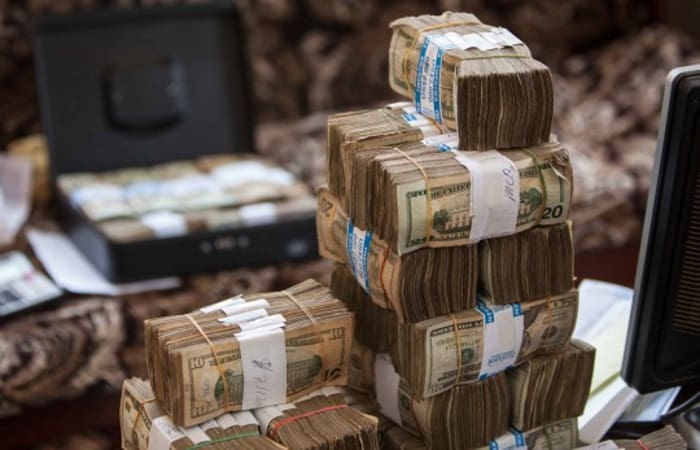
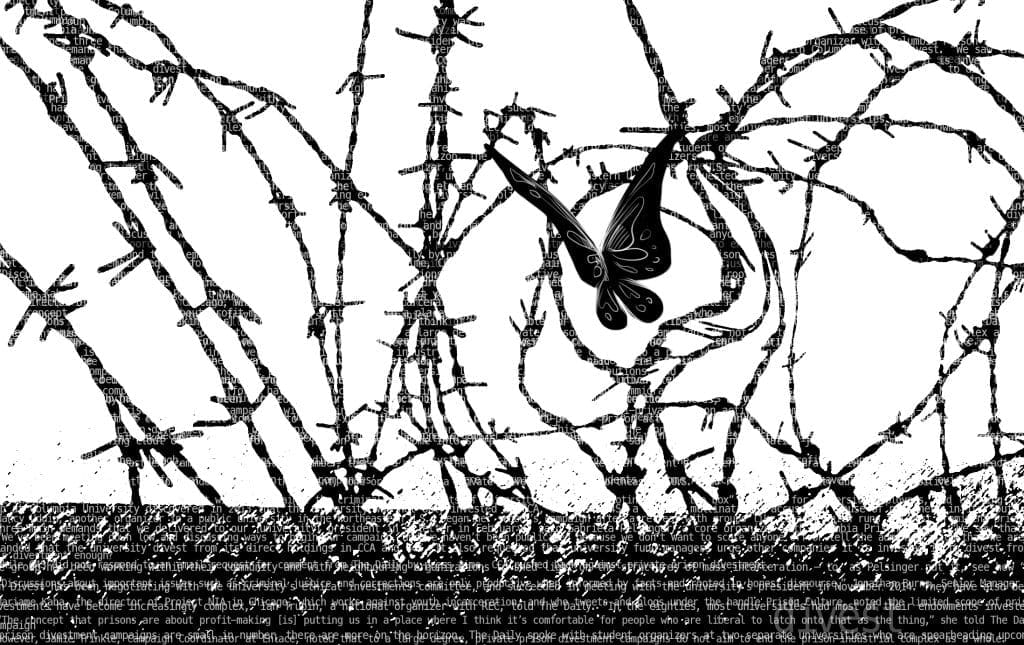
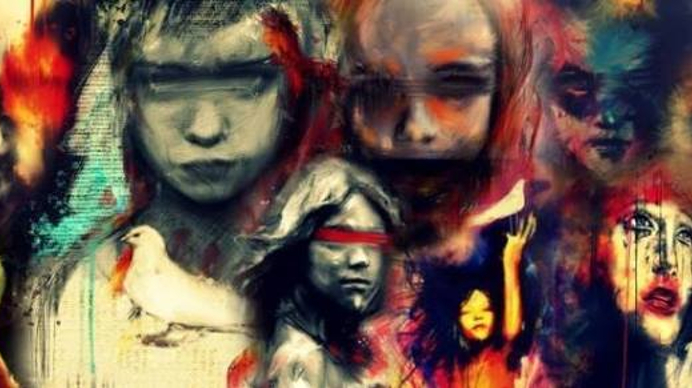
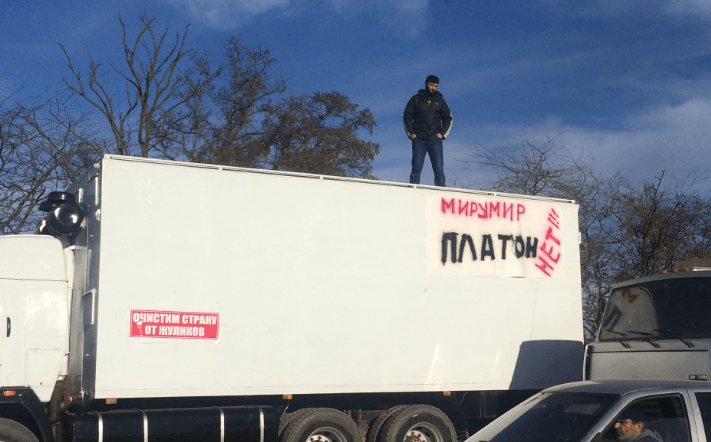
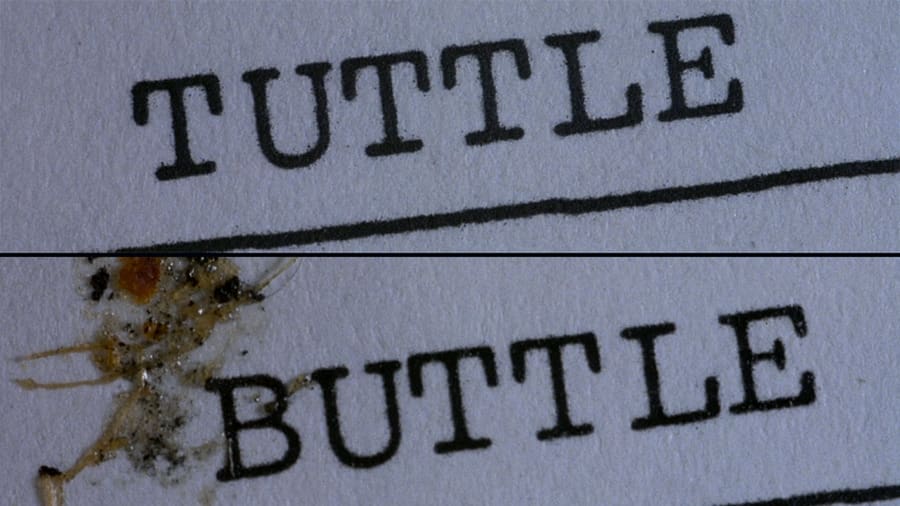
Pingback: Reinterpreting the Chinese Capital “Scramble” in Africa | aNtiDoTe